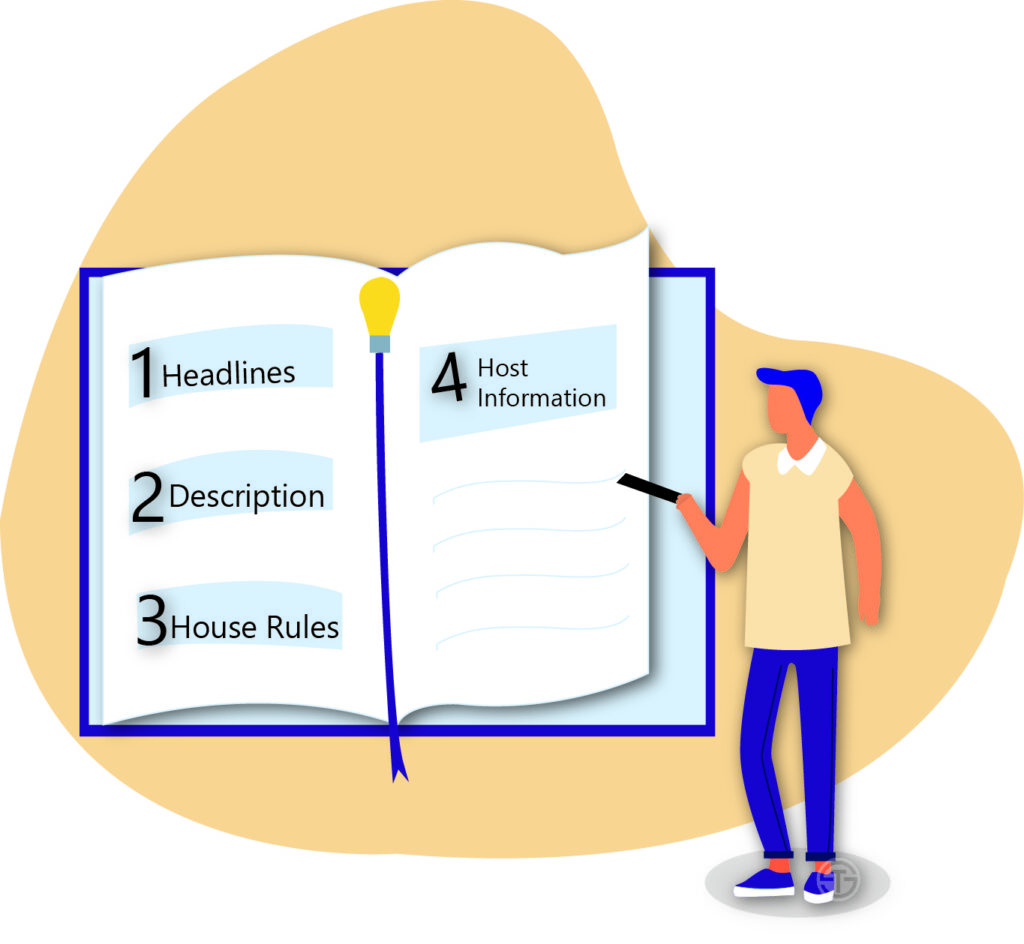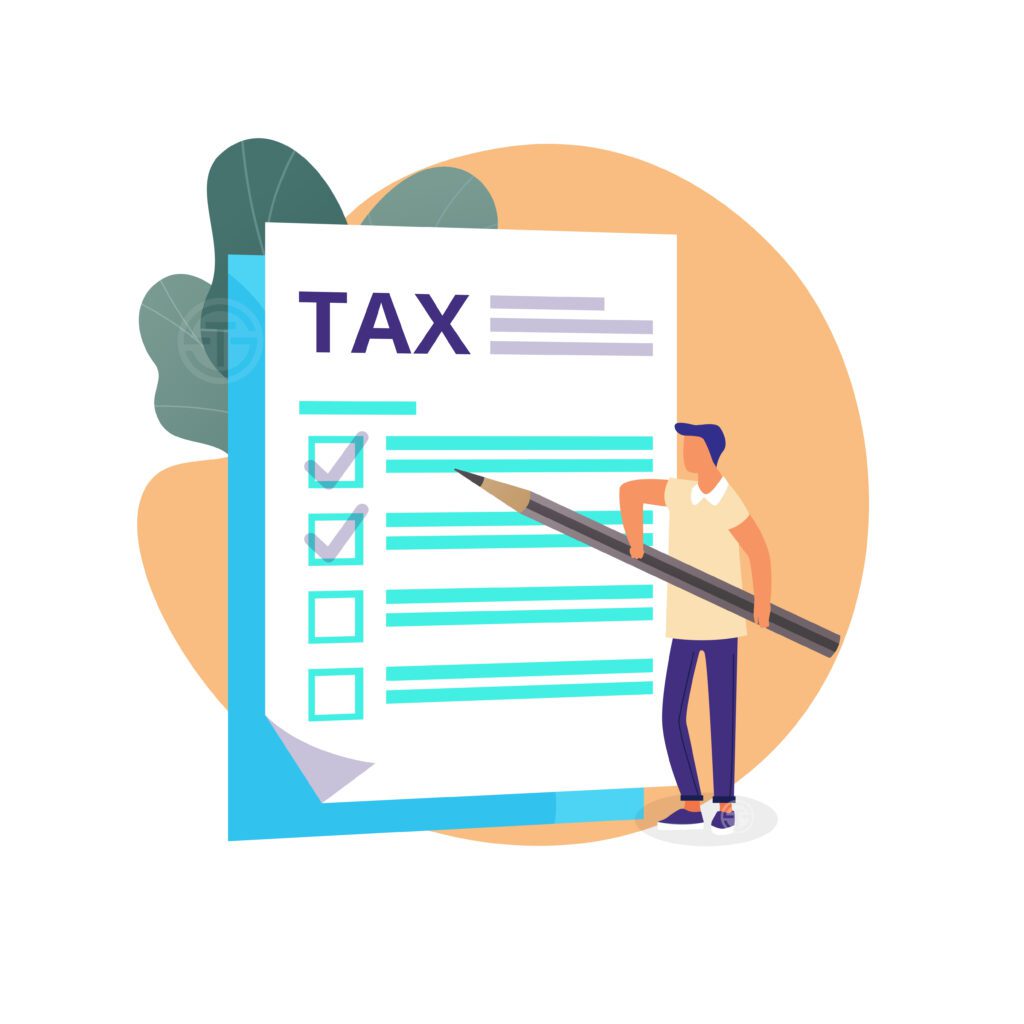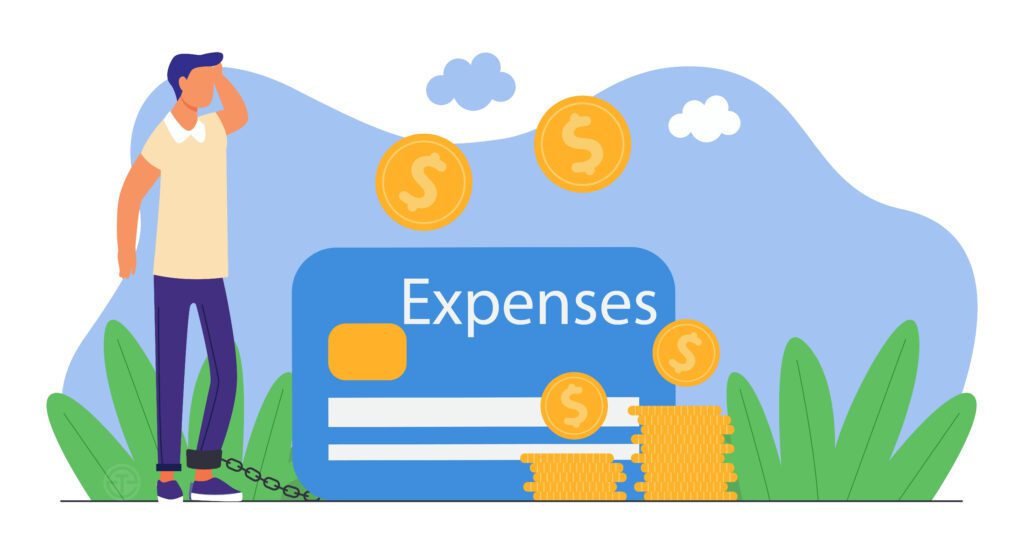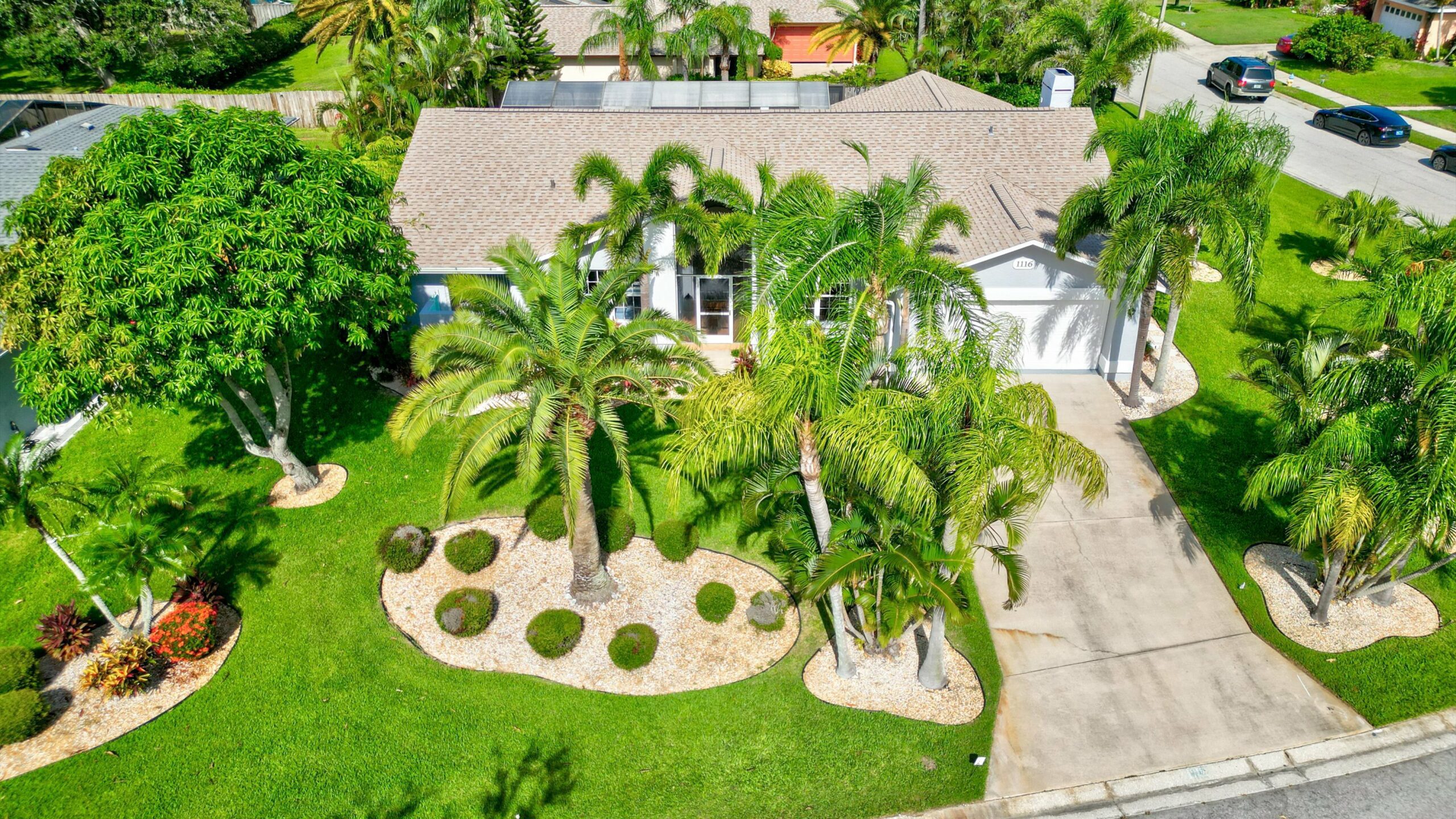Becoming an Airbnb host may seem like an easy and hands-off job, but in reality, a lot of attention and details go into buying and operating your own Airbnb. You’ll need to find out if you have permission to list your residence on Airbnb, the rental ordinances (short-term or long-term) in your area, how to optimize your listing on the platform, and most importantly how to maintain your guests’ optimal satisfaction. So, in order to guide new hosts through this process, we’ve put together this guide with a few handy tips.
Location and Property Search
We are going to walk you through how we personally determine if a city and/or even certain areas within that city have a good potential for running an Airbnb business.
But first, let’s agree that everyone’s risk tolerance and needs are different. Therefore, it is important to set up a plan and visualize your short-term and long-term goals before even considering operating an Airbnb. So ask yourself a few questions before even starting to look at a property:
- What is your purpose for operating this Airbnb? Are you starting this business in the hopes of becoming a professional full-time Airbnb operator, or is it just a part-time gig to earn some extra money?
- How will you utilize this home? Is it a vacation home that you’ll be using along with your family and friends that you can visit whenever you want, or will you be willing to rent it out full-time instead?
- What is your property management strategy? Do you live in proximity to the property in question and want to be a hands-on manager, or do you live in a different state or travel around and want to build a team that’ll help you manage it efficiently?
Our advice to you, answer these questions before you can start the actual property hunt, as it will help you get the right investment in the right location.
Legal Issues, Short-Term Rental Ordinances, Licensing, and Permits
The definition and details of licensing and rental requirements of an Airbnb vary widely between different states, counties, and municipalities in the United States. As an operator, it’s essential that you be compliant with all short-term rental laws and regulations at the city, county, and state levels.
To better understand these legal nuances, let us give you an example of a property we manage in Holmes Beach, Florida. In Florida, a short-term rental operator (Airbnb operator) has to be registered with the Department of Business and Professional Regulation (DBPR) as well as The Department of Revenue (more on that later).
Our point of this is that looking at the local ordinances will help you determine if the property is the right fit for you even before you purchase it. Maybe you don’t want to pay a $550 application fee or perhaps you don’t want to deal with an occupancy limit, because you think this might affect your Average Daily Rates (ADR).
It is essential, therefore, to look into the local ordinances before property purchase as well as after, for obvious reasons. The same applies to state requirements.
Property Identification and Research
Knowing the specifics of what to do and which steps to take before buying a property will help you have a positive overall experience. In the following, you’ll find the process we use to identify a property that we find suitable to run an Airbnb business.
We start with these two simple questions:
- Is the area good for an Airbnb?
- Is the property worth the price I am paying?
To best answer the first question, we usually start with a simple search within Airbnb for a specific city. Let’s give an example of Anna Maria Island where we already operate a property. We always like to search during the peak season to understand the supply and demand of properties available on Airbnb.
At this stage, it’s quite important to comprehend your traveler profile. In our case, we focus on larger groups of families and friends; let’s say an average of 10 travelers. A June 5th to June 10th, 2023 search for 10 travelers (7 adults, 3 kids, and 1 pet) in Anna Maria Island, Manatee County, FL reveals 103 available properties on Airbnb during that time period. For us, that sounds like a limited supply of rentals, given that the search was one year in the future. As you approach the specified date, available rentals become scarce as most travelers tend to book last minute. We also pay close attention to the competition to better understand their occupancy trends, and their average daily rates, as well as reading through their guest’s reviews.
Now to answer the second question, before zeroing in on the house itself, we always research the neighborhood where the property in mind is located. There are several factors that we take into consideration while conducting this market analysis (for a more comprehensive example check out my LinkedIn article), including:
- Overall size of the market.
- Different main neighborhoods and neighborhood reviews, using tools like Neighborhood Scout and Niche.
- Major highways, arteries, boulevards, and roads leading to the city.
- Airports.
- Demographics and population.
- Median gross rent.
- Income, education, and occupation.
- Top employers, businesses, and job diversity.
- Commute time.
- Public transportation and overall transportation data.
- Real estate development and overall economic outlook.
- Crime reports.
- Rental supply and demand.
- School districts.
- Shopping locations, number of Starbucks, restaurants, etc…
- Local newspapers and journals.
To look into specific properties, we first turn to Zillow. This platform will allow you an abundance of wealth information, including the number of listings on the market, the prices of similar properties sold, z-estimates, rental trends, etc. Then we head to the county’s or city’s tax assessors’ office website, and we call the city hall to avoid any pending issues, especially in the case of operating a short-term rental.
Although Airbnb does not show travelers the exact locations of properties before booking, we always keep an eye on competitors located close by. We monitor their occupancy and their average daily rates by surveying their Airbnb public calendars.
Since most of our properties are located in a different state than the one we’re residing in, we extensively refer to Google Earth and Google Maps to better observe the satellite imagery, aerial photography, street maps, 360° interactive panoramic street views, real-time traffic conditions and route planning for traveling by foot, car, bicycle, air, and public transportation. We want to fully understand how it feels to be in that neighborhood as if we’re personally living there.
Once satisfied with all of the above, we ask our local real estate agent to run a comparative market analysis to estimate the property’s value by evaluating similar ones that were recently sold in the area. This way we can compare this analysis against the previous one we conducted using tools such as Zillow. And most importantly, we ask the agent to walk us through the property via FaceTime.
When you are fully satisfied after going through all the aforementioned details, you can immediately place an offer for the property.
Business Legal Structure and Entity Type
We want to start off by saying we are not lawyers and do not presume to give legal advice. These ideas are mostly based on our experience as well as observations and readings (we’re avid readers of legal hornbooks!).
When you’re first starting your Airbnb business, running it as a sole proprietorship is probably what you’ll be doing. As you start scaling your Airbnb businesses (3 listings or more), it is prudent to start thinking about either conducting your business as an LLC or an S Corporation. Which entity type you choose should be a decision heavily discussed with both your CPA and your Tax Attorney (find an attorney preferably with an LLM who has some knowledge of short-term Rentals).
This decision is complex and depends on many factors including which state you’re operating in, your personal tax situation, your business goals, your net worth, the insurance coverage and liability strategy you have in place, and your cash position – and that has to do with “piercing the corporate veil” and all the misconceptions that come around it, a topic for another time.
While writing this article, we looked at what other websites had to say about this topic. A lot of sites tried to explain and give an opinion about how an LLC is a better option than an S-Corp and vice versa. In our opinion, this is a superficial way to look at this topic. We cannot stress enough how important it is to leave the legal structuring issue to your tax and legal team (you should have one by now). Together, you can formulate the best legal strategy to approach the type of ownership.
Insurance and Damage and Asset Protection
What is meant by Host Protection is basically to help cover and insure hosts against damages done to their place and/or belongings caused by guests, any unexpected cleaning costs hosts may incur due to the behavior of guests during an Airbnb stay, and income lost if hosts need to cancel Airbnb confirmed booking due to damage caused by a guest.
Regular insurance policies that homeowners possess for the most part don’t cover the rental aspects of the property or damages that may ensue from guests. Luckily Airbnb provides its hosts with AirCover to better ease their minds. It’s basically a free insurance policy, put in place for all hosts, that provides $1,000,000 compensation for property damage and a similar amount for third-party injury. As long as your listing is on this platform, this policy is applicable to all its bookings.
And if hosts prefer not to go with AirCover, or focus more on damage and asset protection through their own direct booking website, they always have other insurance options such as the plans offered by their rental management platform of choice (i.e. OwnerRez). It’s also always prudent to have renters or homeowners insurance as well as any additional site-given policy, and don’t forget to introduce a security deposit and request for guests’ identification (ID, passport, driver’s license) to your rental agreement. OwnerRez recently introduced this feature to their platforms due to hosts’ requests to better ensure their properties are protected through and through. This will come in handy in case hosts need to file a claim against inappropriate guests. Hosts also have the right to vet their incoming guests for further information about their booking (party size, whether they’re bringing pets with them or not, and if they’ve disclosed said information, why they’ve chosen this particular listing i.e. what’s their reason for booking). All this will ensure you stay protected from all sides.
Safety First
In accordance with Airbnb guidelines, prioritizing safety for both guests and hosts alike is a must. To insure guests’ safety when staying at the property, hosts should be aware of the following:
- First Aid Tips
- Safety Resources (in the USA or depending on the country where the listing is located)
- Health and Safety Requirements
- Safety Tips for Interacting with Others
- Safety when Choosing a Place
- Fire and Carbon Monoxide Safety
- Tips when traveling with children
- Cleanliness and sanitation
Keep in mind that safety isn’t merely a must for guests, but also for hosts. To avoid any issues down the line, keep all conversations with guests limited to the Airbnb platform itself. This would act as a paper trail to follow up on if any discrepancies occurred with guests down the line. When an issue arises or is reported to you, work on fixing it immediately without procrastination. Some reported issues may seem silly and irrelevant at first but can have a major underlying cause.
Also, in the case of hosts having a direct booking website, avoid mentioning such things through Airbnb or even Vrbo platforms so as not to get banned and/or penalized.
For a more inclusive idea on all safety measures you may need to take, check out our ultimate guide to Airbnb safety for both guests and hosts.
Financing a Short-Term Rental
In real estate investments, a short-term rental that is consistently and regularly booked will outweigh a long-term rental. But first, hosts must find a way to finance this investment. There are several paths that you as a host may want to take to achieve said finance, each with its own list of pros and cons:
- Standard Loan: A standard (conventional) loan is the path most traveled by hosts when looking to finance their purchase of a second home, mainly offered by banks and mortgage lenders who need extremely strict requirements. Some lenders may be flexible if you put more money as a downpayment, though this isn’t a practical course of action that hosts can adhere to. That’s not to forget the IRS’s requirement for hosts to stay at their listings no less than 14 days on a yearly basis.
- Home Equity Loan: Merriam-Webster dictionary defines equity as being the money value of a property or of an interest in a property in excess of claims or liens against it. To put it in layman’s terms, your equity increases with each mortgage payment, and as your property appreciates over time, like aging wine. Home equity is simply a lump sum that you can repay in a period of 5 to 30 years in predetermined fixed installments.
- Home Equity Line of Credit: To not overcomplicate matters, HELOC is basically a type of second mortgage that permits hosts to tap into their primary home’s equity. The larger the equity, the bigger the loan they can draw. It’s quite different from the above-mentioned home equity loan. Usually, this is a loan with a 10-year draw period and a 20-year repayment term.
- Private Lending: When you can’t meet conventional lenders’ requirements, private lending may be your only option. Among loan programs that private lenders tend to offer are short-term bridge loans and rental loans. Their differences reside in the criteria lenders take into consideration when approving a loan. Hosts aren’t only defined by their income, but also by the short-term rental’s cash flow consistency.
- Cash-out Refinance: Again tapping into your primary home’s equity, hosts in this case will be refinancing with a new mortgage for a higher amount. Initially, you’ll be cashing out a part of your first home’s equity to help finance your second home. Interest rates can be fixed or flexible, and terms can be repaid in a period of 15 to 30 years.
A few essential notes that hosts should keep in mind when thinking of financing a short-term vacation rental:
- Accurate real estate appraisals are vitals.
- Regulations might overcomplicate your investment.
- Turnover affects investment property profitability.
Designing a Property Theme
Guests are mostly attracted to a well-furnished and designed home, and more often than not, they absolutely love a design based on a specific theme. Once you’ve closed on the property purchase, you can go ahead and start envisioning a theme and set-up to follow when designing and furnishing your home. Hosts tend to gravitate towards a beach or marine design theme when their homes have a beachfront, a cozy and warm theme in the case of designing a cabin in the woods, or refined furniture and luxurious amenities when they’re designing a villa.
From our personal accumulated experience, here are some tips you’ll find come in handy when designing your property theme:
- Using props following said theme.
- Relying on lush greenery.
- Making your space appear as open and bright as possible.
- Emphasizing local flavors in your home.
- Play up natural lighting.
- Adhering strictly to your theme, don’t overlap with another.
When planning your Airbnb design theme, you have a myriad of options to choose from. You can go from mellow and chill themes like beach life and forest cabins to extreme themes that will target specific niches, i.e. Harry Potter or Star Wars-themed bedrooms within your house.
Furniture and Supply management
Once a theme has been decided, then comes furnishing. There’s absolutely no need to overcomplicate this process. Merely follow the design you’ve already established, and the puzzle pieces will simply fall into place. In the following guide, you’ll find some tips that’ll ease your way through furnishing:
- Compile a list with everything your property might need, from furniture and appliances to various supplies. When choosing the furniture, keep in mind the property’s theme so as to maintain the design and décor.
- Put a budget in place with minimum and maximum limits and stick to it, mainly to avoid any unnecessary expenses.
- The organization is key. Keep a tracker of all issues and missing/broken items, how and when they will be addressed, and by whom. This tracker should always be up to date to keep all your affairs organized.
- Schedule inventory check-ups in between bookings for each property. Keep everything updated with a timestamp, from supplies that need to be restocked to anything you might have extra of and where it’s usually kept.
- Keep the cleaning crew in the loop. Most often than not, cleaners will be the ones to point out if any furniture piece is damaged, and if any supplies are running low. Always touch base with them after each cleaning of each property to confirm that everything is running smoothly.
Photography
Airbnb will allow a maximum of 100 photos per listing. That being said, hosts don’t need to upload this amount of photos. Let’s keep in mind that quality is more valuable than quantity in this case. You could have 60 photos of your listing, but if they’re blurry and unclear, they will be highly unappealing to potential guests. Thus we offer you the top 12 tips to optimize your listing’s photos on Airbnb.
- Clean and pristine.
- Keep it simple, don’t overcomplicate (over decorate) your photos.
- It’s all in the details.
- Use the proper equipment (camera, tripod, etc.)
- Take photos from all angles.
- Don’t neglect the outside of the house.
- Highlight your differentiating attractions.
- Create a lifestyle with your photos.
- Showcase your neighborhood.
- Lighting, color, texture, and depth.
- Adhere to the golden ratio if possible.
- Categorize your photos.
For a more thorough version of this list, check our essential guide to taking to taking the best Airbnb photos.
Listing Content
- Headlines.
Your headlines should be clear and concise. The Airbnb platform allows a maximum of 50 characters in each listing’s headline. Hence you need to maximize the use of what’s given to you, all whilst highlighting what sets your listing apart from others.
It’s highly important to keep updating your headlines on a weekly basis at the very least. This will keep your listing fresh and apparent at the top of guests’ searches. You could always compile a library or list of potential headlines and rotate or mix-and-match between them.
- Description.
Here’s your chance to expand your guests’ knowledge of your listing. Welcome them while accenting your listing’s features. It’s best to go into specific details about the residence, from its square footage to its accommodations and provided amenities. The more transparent you are with your description, the better it is for both you and your guests, especially in the long term.
Start with a welcoming and embracing message to your guests, and follow it up with more specific descriptions of the space you’re offering. Begin with an overall depiction of the listing, its surroundings, and its ambiance, and then delve deeper into each room and the amenities it offers. Keep in mind, that specificity is very imperative. Don’t skimp out on the details.
- House rules.
It is of the utmost importance to emphasize your listing’s house rules. It sends a clear message to any potential guests on how you maintain your residence. These rules must highlight several important points that must be made crystal clear to the guests, among which: check-in and check-out time, the maximum number of guests allowed, additional fees (cleaning fees, pet fees, early check-in or late check-out fees, etc…), whether you allow parties and events at your home or not, quiet hours, securities measures taken at the residence, and such on. The Airbnb platform values transparency and honesty between hosts and guests, and these rules will clarify how your incoming guests should conduct themselves while staying at your residence.
- Host information.
In this section, you as a host can give potential guests a glimpse into who you are as a person. Guests will likely gravitate to hosts who seem approachable and friendly more so than hosts who are strict and rigid. At the end of the day, guests will want to rent a home more so than a house, and hosts can give off this impression when offering information about themselves.
Finding Help
(Maintenance, cleaners, QC, Landscaping, Pool maintenance, etc.)
It’s quite likely that hosts already have a list of trustworthy and responsive service providers in their listing’s area, but it’s also likely that sometimes none of these providers can answer the call, and hosts find themselves scrambling to fix a priority issue at their property so as not to disturb residing or incoming guests. In this case, the solution is usually quite obvious: a simple google/Yelp search. Hosts will probably find hundreds of service providers in that area, but it’s essential to note that one can’t just call them up willy-nilly. One must check their backgrounds first, such as checking their years of experience in the business, their reviews (the good and the bad), and, most importantly, their responsiveness.
It’s worth mentioning that if you’re looking to form a more comprehensive list of service providers for the long term, you could use some platforms that would connect you and allow you to post jobs, tasks, and errands to a skilled workforce. Amongst these platforms:
- Thumbtack
- Taskrabbit
- Upshift
- Agent Anything
- Wonolo
Once a detailed list of service providers is compiled, scheduling each service for each house is very crucial to optimizing your listing’s maintenance. Now it’s quite often that maintenance issues will pop up all of a sudden, that need to be taken care of immediately. But to avoid these scenarios as much as possible, it’s best to take proactive measures such as scheduling and keeping track of regular monthly quality control appointments, a clear cleaning schedule upon each guest check-out in which the cleaners can give a detailed report of any issue that may come to light, from broken or missing items to an overgrown lawn or a dirty pool. When hosts put together an explicit and comprehensive tracker of these schedules, they are likely to minimize any problems occurring while guests are staying at their listing.
Taxes
Now taxes for hosts will vary quite a bit, depending on the area your property’s in. Taxes are usually included in the final total paid by the guest. Sometimes, the latter may ask for a breakdown of said taxes, thus you’ll need to provide a detailed account of each one (i.e. tourist tax, county sales tax, revenue sales tax, etc.) As a host, if you’re looking for an exact estimate of how much these taxes will amount to, we recommend seeking the help of a tax professional. They will be able to provide you with all kinds of helpful information pertaining to this subject.
In addition to the aforementioned occupancy taxes, hosts must also abide by the value-added taxes (VAT) for each property. However, it’s important to mention that there are cases when hosts needn’t pay these taxes, such as:
- When their properties/rentals have been vacant for no less than 12 consecutive days.
- When their property isn’t being rented on regular bases (less than 10% of the time).
- When their property is being utilized for personal use for at least 14 days or more across the year.
For tax return purposes, hosts can always keep track of their Airbnb earnings through their host dashboard, where they can also access all transaction history. In the case of hosts offering Airbnb Experience Services (a wide variety of tours and events through Airbnb), the same rules apply. Taxes will not be the same for all areas.
Expenses
In accordance with Airbnb’s official website, hosts must pay, for each booking of each residence, a fee of 3% of the booking subtotal. The subtotal is a property’s nightly rates, cleaning fees, and pet fees, excluding taxes and Airbnb’s listing site fees (around 14% of the booking subtotal). If a certain number of long-term housing were to be converted to short-term rentals, the single biggest expense exacted by Airbnb would be a higher housing cost for city residents.
These are just Airbnb’s (listing site’s) fees. Hosts must also take into consideration other expenses such as regular maintenance costs, quality control, appliance repair, further constructions that a listing might need with time, and costs that ensue from sudden damages due to unexpected circumstances i.e. floods, storms, etc.
Now you might be asking yourself, with all these expenses, is it worth it to be an Airbnb host? It is a just question. According to CNBC, a host can make an average of $924/month, an estimate acquired from low-interest lender research. Of course, these estimates can change depending on your listing’s area, its availability, its booking frequency, the amenities and accommodations provided, etc.
Alternative OTAs
While Airbnb may be the most popular and most utilized short-term rental listing site, it is not the only one. Hosts shouldn’t simply rely on their listings being published only on this platform. Alternative online travel agencies (OTAs) provide property managers with a more inclusive multi-channel distribution of their listings to better enlarge their audience and further their reach. It’s crucial for hosts to find the correct mix of channels that they wish to advertise their business on in order to maximize their occupancy and revenue.
It’s also important to note that not all OTAs operate in the same way or serve the same audience. Some have quite a far reach internationally, while others serve very specific niche segments of travelers. In this guide, we’ll shed some light on various reliable OTAs to better aid hosts choose where they wish to advertise their listings. Everyone already knows Airbnb, but many of its competitors are:
- Vrbo (Its specialty is unique listings such as beach houses, cabins, villas, castles, etc. with quite the reach of over 15.9 million site visitors)
- Booking.com (originally made for hotel accommodations and then branching into vacation rentals, it’s a close competitor to Airbnb)
- Trivago (an OTA utilizing the metasearch engine strategy)
- Expedia Inc. (its abundant network of partners and rental suppliers have expanded its OTA reach to many various countries worldwide)
- HomeToGo (one of the largest meta-search engines, aggregating listings from over 600 different rental sites internally. Its US subsidiary is Tripping.com)
- Tripadvisor (world’s largest review site used by no less than 490 million travelers, not only listing rentals but also restaurants and various attractions)
- Google (Trust us on this, a simple google search will immediately direct guests to hosts’ direct booking website. This is especially handy when guests and travelers wish to forgo listing site fees)
- Trip.com (#1 OTA in China giving hosts access to its extensive audience, listing hotels and vacation rentals alike)
- Agoda (international metasearch engine, particularly popular in Asian countries and big European cities)
For a more extensive look into Airbnb’s competitors, and the most notable alternatives travel agencies, feel free to check out out comprehensive guide.
Choosing the Right Short-Term Rental Tech Stack
We are living in a technological golden age, and that certainly holds true when running an Airbnb. After all, both Airbnb and VRBO are first and foremost technological companies. There are numerous software platforms that short-term rental property managers and hosts utilize to help automate and streamline their operations. Let’s get right into it!
When looking to automate your operation, here are the best tools for your vacation rental business. If this is your first Airbnb, you will not need all of these solutions. However, you could choose your preference and keep the rest in mind for future reference.
- Property Management Software (PMS) In essence, a PMS centralizes certain tasks related to running your short-term rental business. Most of the PMS available on the market focus mainly on reservations and operational tasks. These PMS companies can mostly be split into two categories:
- Medium to large-sized PMS (50+ properties) such as Track, Ciirus
- Small to medium PMS (less than 50 properties) such as Hostfully, Zeevou, Avantio and OwnerRez
The main functions of a PMS include:
- Reservation management in a centralized calendar, by connecting with listing sites like ( Airbnb and VRBO) for inquiries, bookings, rates, content, availability, and calendar synchronization.
- Configuring options to integrate pricing and revenue management tools.
- Performance analytics and insights to improve listings.
- Syncing with accounting tools like QuickBooks, setting up guest payment, travel insurance, and damage protection.
- Offering branding through hosted websites or integrations of custom WordPress websites and widgets to existing websites for booking, availability, and search.
- Guest Messaging, through emails, SMS numbers, autoresponders, etc…
- Setting up rules for holidays, cancellation policies, Check-in, and Check-out.
For a more comprehensive overview of how a PMS can help you build your short-term rental business, look for our article titled: The Ultimate Guide to Property Management Software.
- Channel Management Software (CMS) To help ease the differentiation between a PMS and a CMS, simply put, a PMS can behave like a Channel Manager and it should be connected to one. Whereas a Channel Manager is a piece of specialized software that allows you to automatically distribute property listings across multiple booking channels.
As HostTools puts it: “A PMS focuses on automating operational tasks and streamlining workflows, a channel manager serves to automate the online distribution of your listings and keep your channel calendars updated. The difference between the two has to do with their focus and the suite of tools they provide.”
- Revenue Management Software (RMS) In the short-term rental industry, an RMS tries to constantly solve the problem of allocating the supply of rentals to demand from different market segments, with the objective of maximizing revenue.
For short-term rental managers, revenue management mostly consists of dynamic pricing. However, revenue management can also try to solve other issues including channel distribution problems (If a property is underperforming, maybe it is time to expand the audience by distributing through other channels), data analysis by looking at metrics like occupancy, average daily rates (ADR) and revenue data, as well as digital presence maintenance (bad reviews, poor photos, etc…)
In the vacation rental industry, revenue management means proactively maximizing your revenue by ensuring your property is listed at the right price at the right time and marketed to the right guest on the right channel. Some of the best, yet most affordable, revenue management tools include:
- Pricelabs
- Beyond
- Wheelhouse
- Rented
- DPGO
- Guest communication, Content Management System (CMS), and Customer Relationship Management (CRM) There are many positive reasons to have your own website for your Airbnb vacation rental business. It allows you to take direct bookings and eliminate Airbnb fees, have control over your brand, and establish credibility with guests as well as manage and establish your marketing campaign by focusing on your guest avatar.
Nowadays, it’s never been easier building your own website with the availability of free Content Management Systems like WordPress which do not require any coding skills.
ThemeForest offers the largest collection of vacation WordPress themes. Once your favorite theme is chosen, simply download it and customize it to your specific needs and requirements.
Once you’ve established your website, you would need to market it. A Customer Relationship Management Software (CRM), like ActiveCampaign, compiles data from a different range of communication channels such as website, telephone, e-mail, live chat, social media, etc… to help you grow your business with customer experience automation through e-mail marketing, free offers, welcoming series, automating pre and post visits communication, driving reservations with 1 to 1 messaging and a myriad of other functions.
- Airbnb Market Data Tools. Leading brands in the travel and vacation rental industry use data analytics and machine learning (ML) to gain insights into the different key performance indicators (KPI). These include things like occupancy, booked vs blocked days, location, listing titles, listing descriptions, number of bedrooms, and calendar availability which are imputed into a model that ultimately analyzes and concludes predictive reservations on Airbnb with a certain level of accuracy.
As an individual operator, you can also use these insights to optimize your Airbnb listings. This helps you see real annual revenue, occupancy rates, and average daily rates for any property. In addition to monitoring market trends (so you can tell if it’s a popular vacation rental market or if it’s cooling down) and links to live listings.
There are various companies that provide these services at a fairly cheap price, most notably:
- AIRDNA
- KEYDATA
- Transparent
- Guidebook & Guest Apps. What really makes an Airbnb business outshine its competitors, other than superb design, architectural edge, or unbeatable location, is far less concrete in nature and far harder to quantify. It is the way the host makes the guest feel. This criterion relies mainly on one thing above all: service excellence.
What better way to showcase said excellence than offering your guests a house guidebook, in which you as a host can showcase the local highlights that make your property unique, share important check-in and check-out information as well as directions. For the duration of the guest’s stay, these guidebooks will help you send them essential information: Wi-Fi details, how-to guides for appliances, service requests, property-specific amenities, most requested local restaurants, activities and so much more.
Below you’ll find three different guidebook creation services:
- Touch Stay
- Hostfully
- Houseguide
- Smart Home Automation. Home automation is one of the biggest buzzwords in the real estate world as well as in short-term rentals. In a post-Covid world, home automation can help Airbnb operators optimize their contactless/frictionless policies (i.e. Keyless Entry, Online Guidebooks) as well as set up the best work environment while on vacation (strong wifi, home security).
Major categories of Airbnb home automation include:
- Top Airbnb Smart Locks, which allow guests to self-check in and have a contactless experience, in addition to offering your guests increased security and extra convenience and independence from having to meet with the owner/operator. Some of the most commonly used locks and solutions include:
- Schlage
- Yale
- August
- Remotelock
- Top Airbnb Noise Monitoring. Mostly used in a non-invasive way and as a preventative measure against parties, noise monitors trace noise decibels without listening in or recording conversations. As part of the Airbnb community, maintaining a great relationship with neighbors is at the top of your priorities. Some of the best noise monitoring devices:
- Minut
- NoiseAware
- Roomonitor
- Alertify
- Party Squasher
- Accounting Software
- Security & Excessive Noise Devices
- Insurance
- Other Tools (WiFi marketing, Housekeeping, and maintenance, Credit Card Processing)
Launch Day
When you first launch your new Airbnb, it’s completely normal to feel nervous, and pray that all goes without a hitch. Nothing might happen in the first 18-24 hours right after launch, then, due to the 20% new listing promotion offered by Airbnb that we highly suggest you chose, you’ll start seeing reservations coming through.
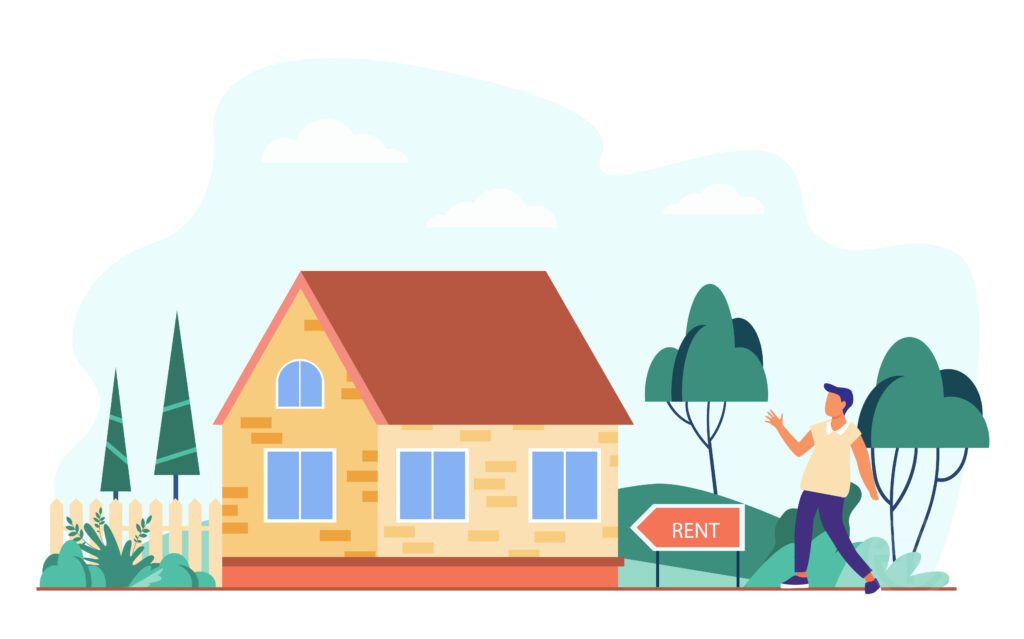
Assuming you implemented all the techniques and tools we discussed, it should be smooth sailing for you from here. If for any reason you hit a bump in the road, you can always reach out to Airbnb customer support. They’re there to help the hosts as much as they help the guests.
Tricks for ranking higher
To optimize bookings, hosts must continuously work on enhancing their listings from several aspects to beat the Airbnb algorithm. You as a host must strive to always work on your listing in the top 5 (at least) during potential guests’ searches. From our own experience that we’ve amounted during our time in the business, we’ve compiled the following tips to help you ace the ranking against your Airbnb competitors:
- Upgrade your listing information. Use words that are oftentimes found in guest’s search filters. Constantly update and rotate your Airbnb headlines, descriptions, photos, and captions. The more often you update the aforementioned, the higher your listing will rise in the ranking. Make sure to keep modifying them on a weekly or semi-weekly basis, post photos with the best resolution, and offer exact, accurate, and fun details about your listing and its amenities.
- Competitive pricing. It is essential to analyze your competitors and set a competitive price in order to appear higher on the ranking. This is mainly due to Airbnb’s algorithm computing your final price (including discounts and additional fees) based on the best value available for guests.
- Open availability. Many factors compute a host’s additional availability, such as your listing’s availability and booking frequency, prompt responses to requests and inquiries, not declining booking requests, not canceling previously confirmed bookings, using instant booking, etc.
- Become a super host. A super host’s odds at having their listings rank higher than competitors’ increases with good and positive feedback and reviews, and with regular bookings of their listings. Meeting a super host’s qualifications will greatly improve your ranking, given that quite a few guests filter their search results to show listings only offered by a super host.
- Search engine optimization (SEO). Given that Airbnb’s algorithm offers each guest the listing best suited for them depending on their search criteria, it’s important to note the most impactful factors on guests’ search results: quality, popularity, and price. To better establish your listing’s presence at the top searches and improve your Airbnb SEOs, follow the aforementioned points, in addition to filling your host profile and keeping it updated, promoting your account on social media, creating guidebooks to each listing’s neighboring attractions, keeping your calendar updated, introducing travel blogs to your website, etc.
Define your Guest’s Avatar
What is meant by “guest avatar” is basically who you envision your guests to be, also referred to as the guests’ persona. Who do you think will be staying at your home? Singles, couples, or large families? Small groups of 3-4 friends, or a large gathering of 12-14? With or without pets? If so, what kind of pets? Some guests are all-around pet friendly, while others prefer dogs over cats (mainly to avoid spraying).
Airbnb Guest Avatars are generally a new twist on a marketing tool that has been utilized forever. To better define your guest avatar, try putting yourself in their shoes. Try your best to fathom their reasons to book with you or to visit the area in the first place, how they would spend their vacation (indoors or outdoors), the expectations they hope are met in your home, etc.
Another foolproof way to define your guest avatar is to give off a crystal clear image of your property through your listing content (descriptions, photos, amenities, etc). This will highly help you improve and expand your business down the road.
Pricing
Dynamic pricing is a key component of enhancing your listing’s revenue performance. While Airbnb does offer its Smart Pricing service to help hosts maintain a competitive pricing strategy, this tool has garnered several mixed reviews from various hosts. Throughout this guide, we’ll take a closer look at Airbnb Smart Pricing, as well as several alternative dynamic pricing sites.
Airbnb smart pricing is basically a built-in tool that operates based on an algorithm, taking into account your property’s metrics such as location, size, amenities, and accommodations, and recommends its rendition of a perfect price, adhering of course to a maximum and minimum range that you, as a host, have previously set. Among the metrics and data that Airbnb Smart Pricing takes into consideration are the following:
- Amenities and listing quality.
- A host’s average number audience.
- Demand in your listing’s area.
- A host’s average review rating.
- Your listing’s rooms and furniture.
- Booking availability
- Similar listings’ searches.
It’s important to note that while Airbnb Smart Pricing does deliver results to improve your listing’s revenue, it has received mixed reviews among hosts, some praising it for increasing their revenue while others critic it for limiting it. When choosing to employ this tool, hosts should take into account its positive features (you can turn it on and off according to your choice, it takes into consideration a price range whose limitations you specifically set, and it generates price tips based on real-life metrics to give you a competitive edge) as well as its negative (its generated price might not be to the host’s liking, it lacks specificity in its calculations, it does not take seasonality into account, it prioritizes bookings over income), and decide which outweighs which.
After much consideration, if you choose to forgo using Airbnb Smart Pricing, fear not for it has several other alternatives, most notably:
- BeyondPricing
- PriceLabs
- Wheelhouse
- DPGO
Once you decide on a pricing tool to utilize, you can begin setting up your pricing strategy. To better aide you with figuring out which approach best suits you as a host, bear in mind the following strategy picks:
- Maximizing rate/night strategy (offering premium accommodations for a higher nightly fee)
- Maximizing fill-rate strategy (lowering your nightly fees to fully book your calendar)
- Long-term renting strategy (leasing your property for a period of time exceeding 30 days)
- Balanced Airbnb management strategy (a mix of the aforementioned strategies, quite the flexible approach where you can mix strategies defending on your booking preferences)
Guest support
In the case of any inquiries, or to further clarify a particular subject, both guests and hosts can easily contact Airbnb support for assistance in matters such as pending payment, booking alterations, personal safety, on-hold security deposits, etc. Airbnb representatives are but a call away to offer their support, simply dial their toll-free number +1 (855) 424-7262 (for US residents) or any of their international phone numbers depending on your country of residence.
And their support isn’t merely extended to guests. Hosts can greatly benefit from Airbnb’s support in cases such as helping with a pending reservation, neighborhood concerns, reporting a party, etc.
Let’s not forget though, that hosts also have a duty to be quick, efficient, and responsive with their guests, their worries, and their inquiries. No better way to retain potential guests’ loyalty and respect than by putting their minds at ease for all aspects of their stay.
Airbnb rules and policies
To maintain order in their residences, and ensure organization and sound structure, it is only natural for hosts to instill rules and regulations that guests need to abide by when booking their reservations. Airbnb already has a set of rules and policies in place to guide potential guests on what is and isn’t allowed at a specific listing. Most notably among these rules are the ones pertaining to:
- No smoking is allowed.
- Pets. It goes back to each host whether they were to allow pets in their houses or not.
- Children and Infants. Is the house childproof? Is it suitable for children and kids of small ages?
- Parties and events. Airbnb community guidelines forbid parties and loud events, mainly so as not to disturb the neighbors and not incur damage to the property itself. In the case of a violation, hosts have every right to cancel the booking with no refund issued, of course after double checking that a party/event did take place at the property.
- Unregistered guests. For the most part, many hosts frown upon guests bringing unregistered guests to their property. The latter must stick to the party size previously registered through the platform.
- Noise Curfew. Quiet hours (often times from 10:00 pm to 8:00 am, depending on the community guidelines) must be respected and adhered to, with no violations.
- Door Keys. Most hosts equip their residences with an automated door lock and send their incoming guests with all the necessary codes to access the house.
- No food or drinks in the bedroom. Some hosts don’t even allow shoes in the bedroom.
- Adhere to check-in and check-out times. Generally, check-in time is at 4:00 pm and check-out is at 10:00 am. If guests were to require an early check-in or late check-out, additional charges may ensue, depending on the host.
- Maintain household cleanliness. Hosts will of course send their cleaners after each check-out, but guests are expected to maintain a certain level of cleanliness in the house, like cleaning their own dishes, sweeping the floor if they’ve caused a mess, etc.
- Furniture Management. Guests should treat the hosts’ house as if it were their own. It would reflect greatly on them when they take care of its furniture and appliances, to keep everything as is. In the case of ruined furniture or broken appliances, hosts can and will charge the guests if it surpasses their security deposit.
- Parking. Given that each listing has its own parking rules, whether it be private or public parking, guests and visitors are required to adhere to the parking regulations and requirements and show consideration to other vehicles in the neighborhood.
- No illegal substances. This goes without saying. Recreational drugs and other forms of illegal substances are absolutely prohibited from the premises.
If hosts see fit to add to the already established Airbnb house rules and policies, they can always edit their house rules through the platform itself, or even on their own direct booking website.
Marketing
As with all businesses, marketing is key to ensuring your listings’ bookings thrive. It encompasses the strategy you will be following to maximize your audience reach by attracting potential guests and the tools you’ll implement to convert them into reservations. A marketing plan must be set in place to better promote your properties both online and offline. Hence the accented value placed on digital marketing, especially given this type of business in this kind of modern age. That being said, hosts should be strategic when choosing which type of digital marketing tool they wish to administer. You shouldn’t spread your efforts too thin but focus on specific areas that will increase traffic and bookings.
Now that the short-term rental market is growing quite significantly, it’s only prudent to utilize a differentiation strategy that will distinguish your listings from their competitors. You need to provide extra value for your guests, existing or potential, to solidify your business in this market. In this guide, we’re hoping to help other hosts improve their marketing strategy with the following tips:
- Establish your brand name. According to Search Engine Journal, no less than 50% of small businesses lack an appropriate marketing strategy with pre-planned goals, and about 25% have an unstable strategy, to begin with. Thus the a crucial need to differentiate your Airbnb business from the competition by taking the first step of establishing your brand name and logo and streaming it through different platforms.
- Connect your business to social media platforms. Get Facebook and Instagram savvy. Most travelers go to Facebook first when searching for an ideal location or listing to best fit their requirements. Putting some focus on your Facebook ads campaign, expanding your audience range, and constantly updating your business page and posts are but a few ways to keep your Facebook account fresh and popping up at the top of guests’ searches.
Facebook alone will not suffice though, especially now. The main focus gravitates toward Instagram, particularly with the younger demographic. This platform is where all the action happens. Let loose with your visuals here. Frequently edit your photos and videos with the ease provided by many phone apps such as Lightroom, VSCO, Snapseed, etc. Just don’t go overboard, keep it simple and classy.
- Innovative videos about your rentals. Start your own youtube channel, detailing and documenting each of your listings, its accommodations, its amenities, nearby attractions, how-to tutorials for hard-to-navigate appliances, etc. With help of a graphic design team and professional video editors, build a channel following to enhance your business and its audience.
Adding to the travel you’ll get from youtube, you should also focus on Instagram videos from stories and reels to iGTV videos.
- Collaborate with influencers. Travel bloggers and social media influencers are the keys to enriching your digital marketing plan. In order for this kind of partnership to work, you need to first set your sights on the right influencer, make a plan with them with clear and precise goals and objectives and prepare a contract with proper terms and conditions.
- Partnerships. Another way to further improve your listing digitally is to collaborate with local restaurants, amusement parks, and various rental companies. This will help greatly with word-of-mouth and buzz marketing, especially among locals.
- Attractive content creation. Great, attractive content is the best sales tool in the world. Content marketing’s main aim is to create leads and conversions to ensure bookings. Good content can be easily managed through your direct booking website’s blog section, all while optimizing your SEOs to draw in new traffic.
Other things to know
- Neighbors.
- Airbnb independence.
- Finance and accounting.
- How to handle difficult guests.
- Short-term rentals vs long-term rentals.
- Self-management vs property management.
- Party prevention.
- Scams.
- Multiple Airbnb accounts.
- Plan for growth.
Disclaimer
This guide, including any claims or statements within, is not endorsed by, directly affiliated with, authorized, or sponsored by Airbnb or any of the aforementioned platforms in any way.










